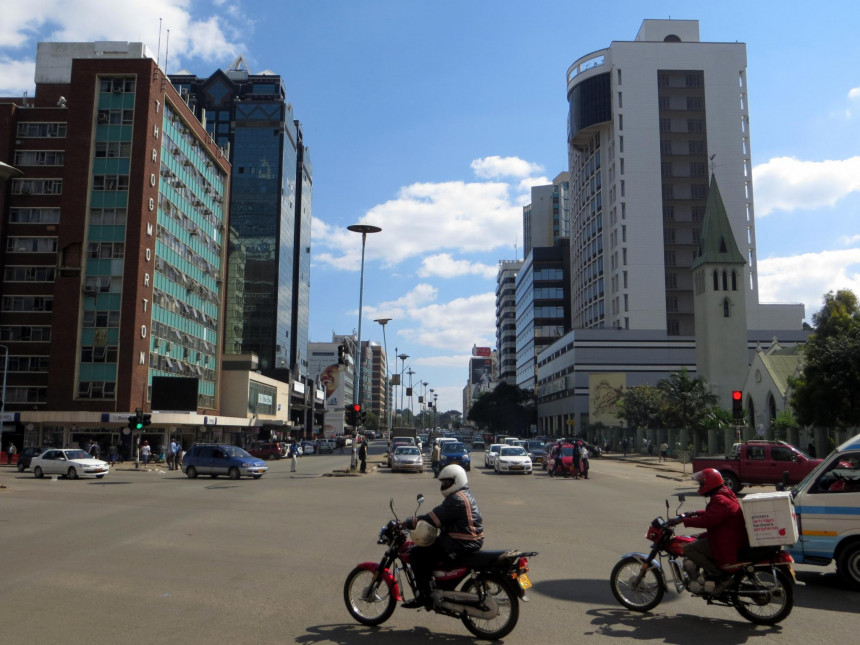Zimbabwean police would put our roads in order within a month

People quickly get used to everything. When you travel around India, you don't notice the inescapable garbage on the streets after a week. It is starting to seem natural. While living in Riga, you may not notice the growing permissiveness on the streets and sidewalks. Everyone drives and places their vehicle as they want, where they want, and does things as they see fit.
Aggressive driving, which seemed to be declining five years ago, is once again becoming more common; three seconds after the red light comes on, many continue to cross the intersections as if the traffic light did not apply to them (and I’m not talking about situations listed in Article 54 of Latvian Road Traffic Regulations); the permitted driving speed is violated en masse; turn signals are used too late, too fast or not at all; cars are parked on bike lanes, sidewalks, in the green area and many feel that this is the norm (but where else would I park?). Let's not even talk about what is happening on the sidewalks, where pedestrians are endangered by cyclists, electric scooters, Segway-riders and others.
In other words, in Riga, and not only in Riga, there is a growing chaos on the streets. If ten or twenty years ago, there was a growing tendency for people to show an orderly driving culture, to try to behave 'like in Europe', now there is a setback and more and more signs of 'like in Asia' are appearing in traffic. How to break this trend?
Let us first look at the cause of this bad trend. After the collapse of the USSR and the restoration of independence, there was a desire in society to be as far away from the Soviet Union as possible and to resemble a European country. Even a simple apartment repair began to be called a “Euro renovation”. In driving culture, too, it became stylish to drive “as abroad” - politely, with respect for others, carefully observing the regulations. At the same time, this Europeanisation also affected police forces. The traditional "money gift" given to the traffic police officers was ridiculed, punished and almost completely eradicated by gradually raising police officers' salaries. We approached the European level, but then suddenly the additional conditions needed for democracy to function properly were revealed. Namely, a certain level of public responsibility has to be established. If this level in society is not reached, then democracy begins to hobble.
The problem is that people do not like control, extra supervision, punishment. From the authority’s point of view, it is not popular. It seems to every violator of the regulations that his violation is completely insignificant, logically justified in the specific situation, and he perceives the imposed penalty as the Road Traffic Safety Directorate's (CSDD) desire to earn at the expense of poor motorists. This dissatisfaction spreads to the entire system of power, so from the point of view of elected officials, it is not profitable to be too harsh on a large part of the society (motorists). It is better not to increase people's anger against them. As a result, we are seeing less and less control on the roads, both inside and outside the cities.
What to do? A few years ago, I traveled all across Zimbabwe (more than 2,500 km). Unfortunately, this country can in no way be cited as an example of good public administration, and its dictator (now deceased) Robert Mugabe has proven himself to be a bad leader, but still. Already at Harare (the capital of Zimbabwe) airport, it seems that something is not as it should be in Africa. There is an unusual order. When you leave the airport building, you are not immediately surrounded by screaming taxi drivers pulling you up to their car by your sleeve. Similar order applies elsewhere in the country.
In general, I was surprised by two things in Zimbabwe - cash registers in every rural shop (even more unusual, given that the country does not have its own national currency. In shops you can pay in US dollars, South African rand and Botswana pula). The second thing, the perfect order on the roads and the perfect car fleets. No rattling Mercedeses from the 1970s. Only well-maintained cars that could pass the strictest technical inspection in Riga as well.
The reason for such perfection is simple. There is semi-legal corruption in the country. It is more advantageous for the shopkeeper to put on a cash register than to pay bribes to countless "controllers". Traffic police stop cars for a reason and also without it. Those who work there are find faults in everything they can, trying to squeeze out their five (for locals) or ten (for foreigners) dollars. The traffic regulations must be strictly observed. Ignoring them is too expensive, literally. Admittedly, it is not pleasant to experience this, but on the other hand, despite the English left-hand traffic, driving on this country's roads is easy and safe, which is not the case in many other third world countries, where renting a car without a local driver wouldn’t do.
The suggestion in the title to 'hire' a hundred Zimbabwean police officers for a time, who would quickly put order on our streets, roads and sidewalks, of course, has to be understood as a joke, but every joke has its own truth. Controls need to be strengthened, as self-awareness is proving to be insufficient. Politically, it may also be risky and unpopular, but there is no other way out if we do not want to sink deeper into the general traffic chaos.
